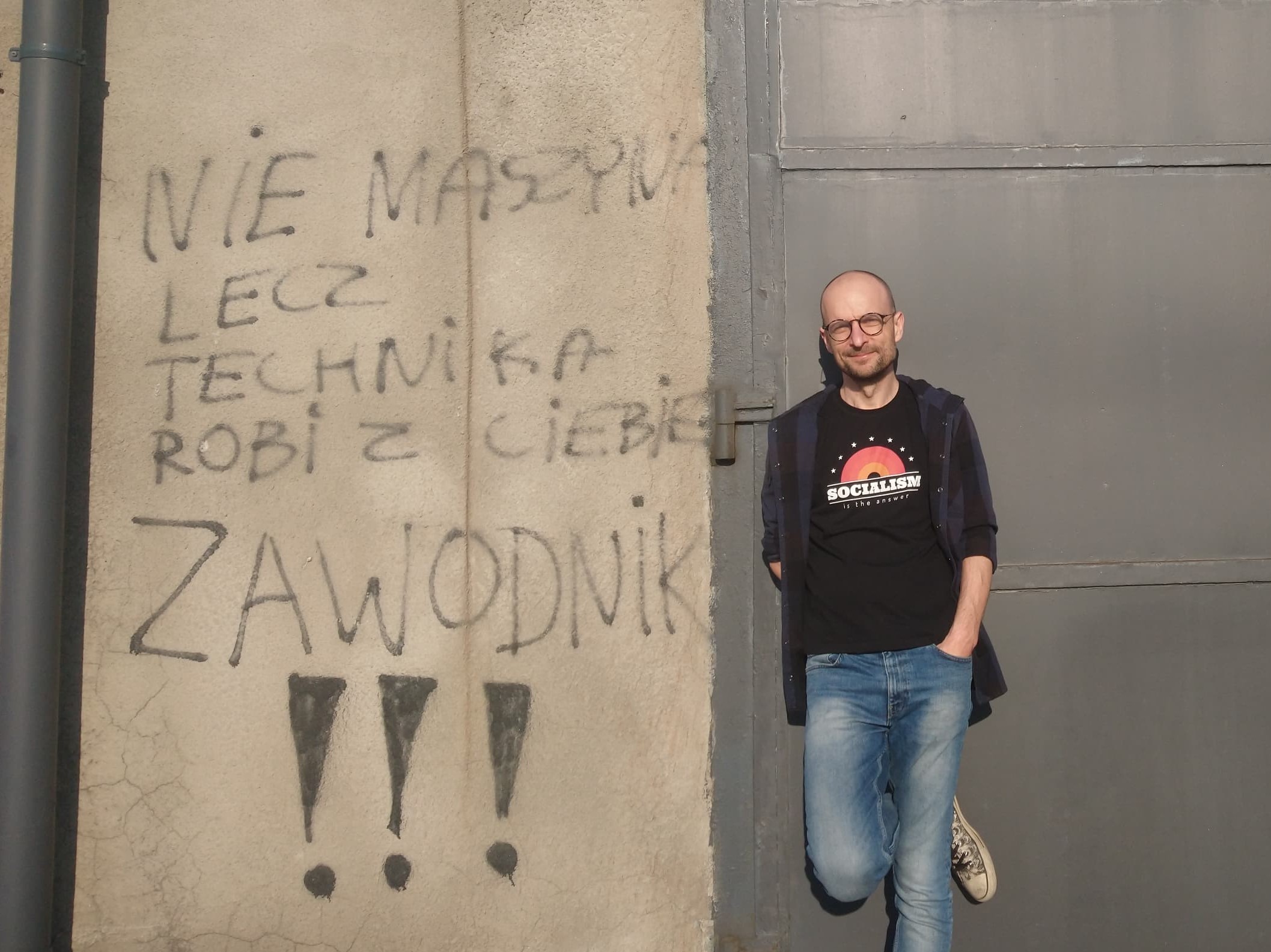Founder of mimo.ooo, a team with a focus on creating, producing and distributing XR/AI formats. European VR pioneer. Explores the automation of creative processes with intent to develop AI algorithm tools automatically generating individualised content for individual users, and their projection in XR format.
Delivered speeches and lectures on the Fourth Industrial Revolution, the XR/AI/5G market and XR-related narratives during festivals and presentations in Warsaw, Vienna, London, Paris, Brussels, Katowice, Tallinn, Poznań, Gdynia, Cracow, Yokohama, Kyoto, Osaka, Oslo and New York.
Active on the market as a content producer since 2000. Short films and commercials he produced won over twenty awards at Polish and international festivals, including the most important one. Since 2015, has been focusing on immersive technologies and artificial intelligence while experimenting, producing content, and building 360 degree cameras and XR distribution platforms. Joined forces with the Polish Multikino multiplex chain in 2017 to launch a VR cinema chain: the MultikinoVR by mimo.ooo. In 2019, launched VRCity by mimo.ooo (a VR zone at the M1 shopping centre in Warsaw) together with Metro Properties.
Chief creative productions:
▪ CVR Woman at the End of the World, 20′, directed by Maciej Piotrowski, produced by mimo.ooo, co-producers: TVN, Discovery VR, August 2019, distribution in VR cinemas: MultikinoVR Warsaw, Poznań, Szczecin, Łódź, VRcity Marki, as producer: https://www.youtube.com/watch?v=Cos-gjCXMaY&feature=youtu.be
▪ CVR G.E.N, VR, 90′ directed by Grzegorz Jarzyna, co-producers: Adam Mickiewicz Institute, TR Warsaw, mimo.ooo, March 2017-2018, distributed at festivals, as producer: http://trwarszawa.pl/projekty/wydarzenie/n/gen-vr/
▪ CVR series Para nie do pary (Mismatched Match), 5 × 5′, episodes 1-5 , produced by mimo.ooo, co-producer: TVN/player.pl, premiered in November 2016-2017, distributed by player.pl, VOD platform, as producer: https://player.pl/seriale-online/para-nie-do-pary-odcinki,4744/odcinek-1,S01E01,66280
▪ interactive VR app Sorcerum, distributed by Steam VR, 2018
▪ interactive VR app Be a Bee, distributed by Oculus Rift, 2018
▪ interactive VR app Dark City, distributed by Oculus Rift, 2017
▪ interactive VR app Horse Riding Jumping Master, distributed by Samsung Gear VR, 2016
▪ short film Mały palec (Pinky), directed by Tomasz Cichoń, 30′, 2014, as producer: https://ninateka.pl/film/maly-palec-tomasz-cichon
▪ short film Przedtem, potem (Before, After), directed by Edyta Sewruk, 30′, 2013, as producer: https://ninateka.pl/film/przedtem-potem-edyta-sewruk
▪ short animated film Świteź, directed by Kamil Polak, 3D animation, 20′, premiered in 2011 at the 61st Berlin International Film Festival (Berlinale), as producer: https://vimeo.com/20013168
▪ short animated film Peter and the Wolf, directed by Suzie Templeton, as post-production manager: https://www.youtube.com/watch?v=RDs-VbbDfzQ



















































